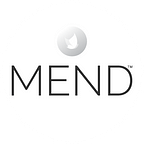Why healthy muscle is critical to preventing disease and enhancing your health — particularly as you age
You have more than 600 muscles in your body. They help you to move, to lift things, to circulate blood through your body, and even to help you breathe. There are voluntary muscles (skeletal muscles) that you control and involuntary muscles (smooth muscles) that you don’t control. Your heart is also a muscle, a specialized type of involuntary muscle that pumps blood.
When we think about muscle, we often only think about it through an athletic lens or aesthetic lens. We imagine bodybuilders or athletes and the role that muscle plays in fueling their body’s ability to perform. Or we think about people who lift weights so they can strut up and down the beach in the summer to catch admiring eyes.
Muscle is indeed incredibly important for athletic activity and lean muscle does undoubtedly give the body an aesthetic appeal, but muscle is so much more important than that — and this is a very under-appreciated fact. Muscle plays a central role in whole-body protein metabolism, which is particularly important in the response to stress. Furthermore, abundant evidence points to a key role of altered muscle metabolism in many common disease conditions and states.
Maintenance of the protein content of certain tissues and organs, such as the skin, brain, heart, and liver, is essential for survival. These essential tissues and organs rely on a steady supply of the amino acids in protein via the blood to balance the persistent rate of protein breakdown that occurs in all tissues. Most of the amino acids that you consume through protein get absorbed into your muscles and they become the source for the rest of your organs.
Healthy muscles let you move freely and keep your body strong. They help you to enjoy walking and playing sports, going for a hike, lifting your child, swimming, and other fun activities. And they help you do those other things that you don’t necessarily want to do but have to do, like cleaning your apartment or mowing the lawn. Strong muscles also help to keep your joints in good shape. If the muscles around your knee, for example, get weak, you may be more likely to injure that knee. Strong muscles also help you keep your balance, so you are less likely to slip or fall.
But muscles also play a critical role in preventing disease and illness. A stressed state, such as that associated with cancer or traumatic injury, imposes greater demands for amino acids from muscle protein breakdown. Physiological responses necessary for recovery may include the accelerated use of proteins in the liver, in immune function, and in wound healing.
Beginning in your 30's, we naturally begin to lose muscle mass and function. It has been assumed that this is an inevitable process that accelerates as we age. However, the latest science is showing that this doesn’t need to be so and that we can maintain and even increase healthy muscle as we get older. With the right nutrients and a regular resistance training program, we can improve muscle health to maintain strength, mobility and to fight disease well into our golden years. This is good news because it means we’ve found a path to maintaining vitality and quality of life with age — all we need a little bit of discipline around nutrition and exercise.
At MEND we are working hard on the nutritional science with leading universities and hospitals. We have created a product called MEND Regenerate, to feed and nourish muscles, you can learn about it here: MEND Regenerate.
